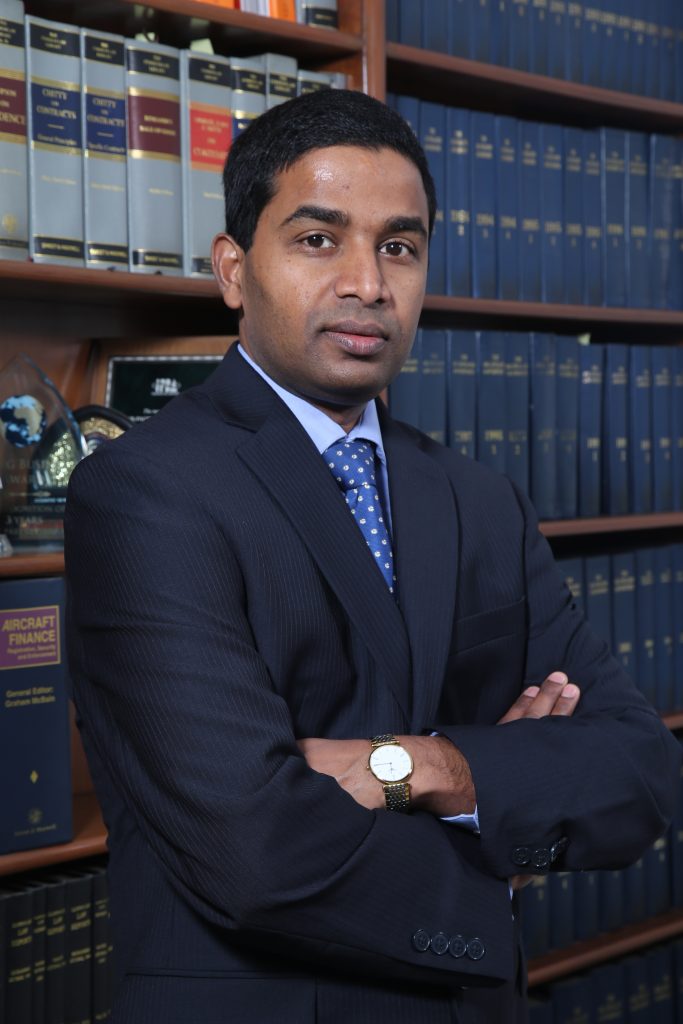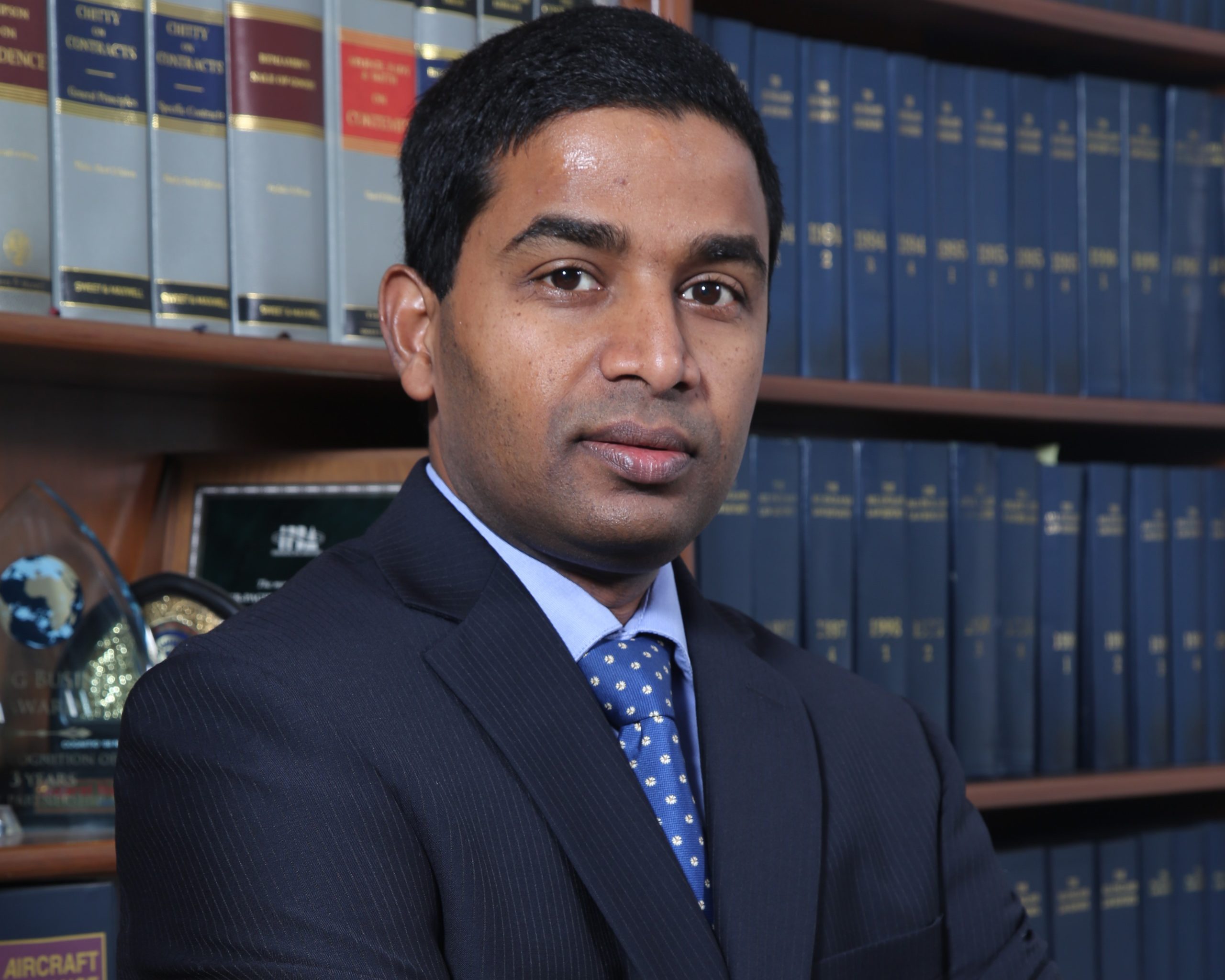This Interview has been published by Pragya Chandni and The SuperLawyer Team

Could you share a pivotal moment or experience that led you to pursue a career in law, particularly in dispute resolution and arbitration?
Choosing a career in law was a natural process as I chose it to follow my father’s wish to become a Barrister. Again dispute resolution especially arbitration was something I was introduced to at my very early ages. Since my father was into construction of ports, dam and road projects, the word ‘arbitration’ was often heard during family discussions. I was encouraged to go through the arbitration cases of my father and also participate in the meeting with his lawyers. The pivotal moment was when I was asked to conduct a cross examination of a witness in an arbitration matter soon after I had become a law graduate.
Your expertise in handling international commercial arbitrations is well-known. What initially drew you to specialize in this area of law, and how has your experience evolved over the years?
Handling international commercial arbitration is the most exciting part in the career of an arbitration lawyer. Attending international conferences on arbitration law opened up a new gamut of arbitration practice. The interaction with foreign lawyers from different jurisdictions was a great opportunity to broaden one’s knowledge base and delve into a field of law which is more challenging and stimulating. Over the years the experience has been enjoyable and fascinating. Every case teaches you to work harder, read more on the subject and the need to conduct in depth research on legal issues involved.
With such a vast knowledge of Indian law, what strategies do you typically employ when approaching complex disputes, particularly those involving contractual matters?
It is important to be thorough with the facts before reading up on the law. Without being well versed with the facts of the case it is difficult to succeed in contractual disputes. The more complex the case, the greater is the need to simplify the facts and the issues involved. The handling of documents and being aware of the case bundles is extremely crucial. The entire process requires forming of strategies and changing them if need be, as one goes along. It is necessary to keep evolving new strategies and to be flexible and receptive to clients feedback and comments.
Your achievements include winning plaudits for your thorough knowledge of contractual disputes. Can you elaborate on how you stay abreast of the latest developments and intricacies in this field?
One way to achieve it is to attend lawyers conferences on the subject, not limited to one’s own jurisdiction but also overseas. It is also necessary to read more judgments on the subject and also arbitration awards rendered by arbitral tribunals. Reading and publishing articles on the subject necessitates carrying out in depth study on the issue and an important means to staying abreast with topics.
As someone with extensive experience in construction arbitration, could you share some insights into the unique challenges and considerations involved in this type of arbitration work?
The biggest challenge in handling construction arbitration is handling the large volume of documents. It is of paramount importance to know which type of evidence would be relevant and necessary to corroborate your client’s case. A decision to lead oral evidence must be carefully thought of, and well considered with due consultation with the client. Clients may insist on expert evidence being presented before the arbitral tribunal but the decision whether to opt for expert evidence should always be that of the lawyer. This decision, considering the Indian scenario, should be taken after thorough understanding of the psyche of the arbitral tribunal.
Given your involvement in drafting arbitration rules and conducting certificate courses on arbitration and dispute resolution, what do you believe are the most crucial aspects for aspiring lawyers to understand in this field?
The rules are there to simplify procedures and this is exactly what lawyers should be doing when handling a matter. No judge or arbitral tribunal encourages complication of the already complicated disputes between the parties. It may seem a very easy task to achieve but it is perhaps the hardest and most difficult skill to hone.
You’ve authored two full-length books on arbitration in India. What motivated you to undertake these projects, and what key messages or insights do you hope to impart to your readers?
Writing books on arbitration is nothing but a means to expand one’s knowledge in the field. The process involves in depth reading and research on the subject. At the end of the process it is not the reader but the author who gains more knowledge who then is keenly waiting for the reader to achieve the same status. To take up this path, it is imperative to have the desire to learn more, the interest to explore and to work hard till one reaches the point where one is ready to write down the first word of the first chapter of the book.
Lastly, based on your wealth of experience and achievements, what advice would you offer to fresh graduates aspiring to pursue a successful career in law, especially in the realm of dispute resolution and arbitration?
Fresh graduates are normally overwhelmed by the success stories of lawyers who they interact with or come across. But more than being enamoured by their success stories it is their journey and hard work which should act as an inspiration and be a source of motivation. There is no instant success in arbitration and continuous dogged hard work without expectation of reward is the key to a successful career. I do understand that it is very easy to say, one should be hard working but more difficult to find the opportunity to do that hard work especially for fresh graduates. However, being resolute is an extraordinary temperament to have. Lastly, as the great Fali Nariman said, never stop being a student of law.
Get in touch with Dharmendra Rautray-
























